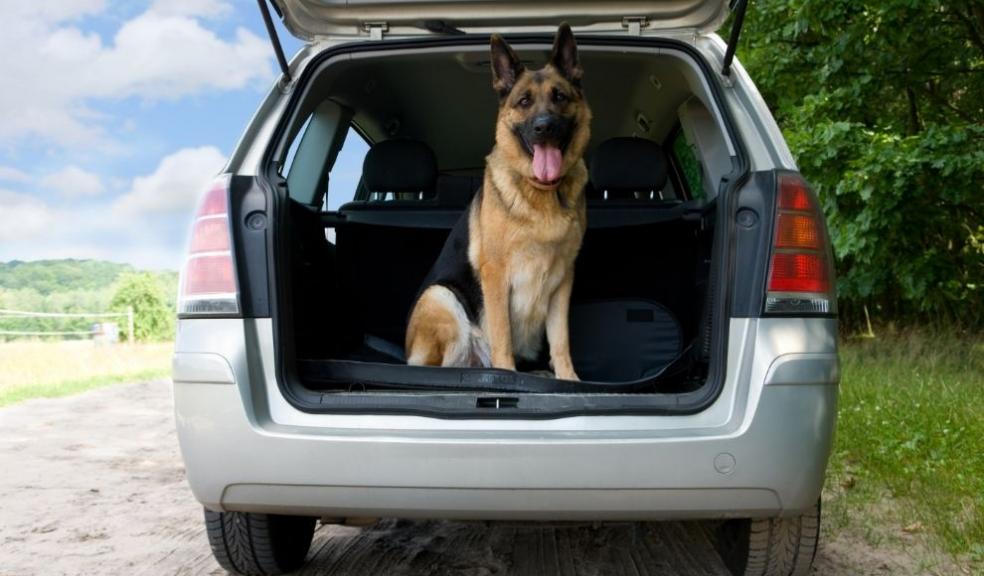
Top tips on travelling with your dog from Vet Joe Inglis
How to give your dog the perfect puppy re-treat
As the schools break up for summer this month, thousands of families will be making their annual getaway. And, with the huge rise in pet ownership since the arrival of the pandemic, many will be travelling with their pups for the very first time.
To help families ensure they have a ‘pawesome’ time, Vet Dr Joe Inglis, Founder of home-cooking platform, VetChef (www.vetchef.com) has shared his top tips. He says: “With 59% of households now owning pets, there will be many more families choosing to take their four-legged friends on holiday with them. However, if you’re taking them for the first time, it can be a daunting experience and there are a lot of things you need to know.
- Always plan journeys with your pet in mind. If you’re travelling by car, schedule plenty of breaks so your dog can relieve themselves or limit the length of stretches on trains or buses in one go.
- Pack everything your pet will need for the journey, including water and a suitable drinking bowl, food if it’s going to extend beyond mealtimes, poop scooper or poo bags for the dog, bed and blanket and their favourite toys. And of course, their lead and muzzle if they need one.
- Never, ever leave a pet in a parked car for any length of time as even short periods on moderately hot days can be fatal.
- If your dog isn’t used to long journeys, try taking them on shorter ones and then building the distance up. If you find them getting car sick, use a car seat harness that allows them to sit on the back seat and see out the front. But, if this doesn’t work, or isn’t practical, speak to your vet about car sickness medications such as Cerenia which is a powerful anti-sickness drug for dogs. Ginger can also help reduce nausea so try feeding a home-made ginger dog biscuit an hour before setting off.
- Book accommodation that is dog friendly. If you’re camping, make sure your dog is going to be happy and safe all night wherever you decide to keep them – in the tent, just outside the tent or in the car with windows open (they need to be wide open).
- Holidays are a bad time to change their diet, so it’s not a good idea to go back to processed food if you’re one of those that has realised the huge benefits of home cooking for your dog. Dogs need a healthy, nutritious diet to keep their energy levels up. The simplest way to manage their food is to pre-pack those lovingly cooked dinners and keep them in a cooler until ready for use.
- Some national parks and activities that you’d normally do as a family, won’t be dog friendly, so make sure you check them before you go to avoid disappointment.
- Once you’re at your destination, keep your dog on a lead so they don’t get lost in a place they don’t recognise.
- Keep them cool – It’s not just humans that need to be sun-safe, it’s your dog too. Make sure their skin is protected using sunscreen for dogs, particularly on their ears – and if they have white fur. Keep them hydrated and ensure that they have plenty of shade and fresh air. If they’re panting a lot, or even start foaming at the mouth, get them inside as soon as you can and give them water. Towels, soaked in cold water, are a good way of getting a dog’s temperature down quickly if they appear to be struggling.
- Your dog might be a big fan of the water and as soon as they see the sea, a lake or river they’ll make a dash for it. But, be aware of hidden obstacles, dangerous currents and even toxic blue-green algae in stagnant water. Do check with the local visitor centre to find areas that are safe for dogs to swim in.
Dr Joe Inglis is the founder of VetChef, the experts in home cooking for dogs. They supply recipes and supplements to make it easy and hassle-free to feed your dog fresh food and has been created by a team of expert nutritionists. For more information visit Vet Chef







